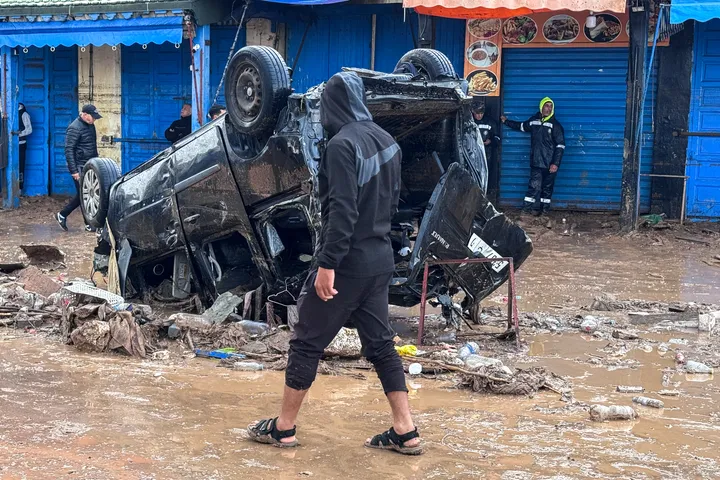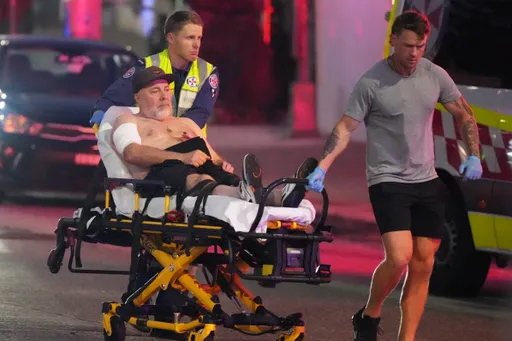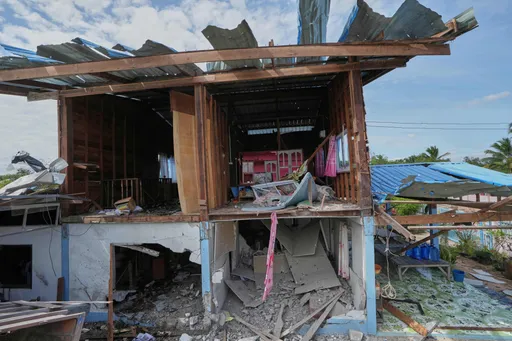Many people in the UK have died in the back of ambulance cars while waiting to be handed over to hospitals' accident and emergency(A&E) services.
In a bombshell report published by the country's ambulance association, the country's A&E units are overworked and cannot cope with the heavy patient in-flow. The investigation has found that a rising number of patients were found to be waiting for long periods outside the A&E rooms, struggling to deal with grave illnesses or injuries in the back of ambulances.
The National Health Service (NHS) report compiled by the country's ambulance association also points at this growing crisis, saying that many people have passed away in their own homes as paramedics were busy at A&E and could not answer emergency calls.
Alongside human casualties, the heavy workload in A&E causes various health harms to at least 160,000 people every year due to long waiting periods in the back of ambulances.
12,000 of 160,000 people, who had waited for long hours to be offloaded to A&E, have been suffering from “severe harm” caused by the delay.
“People with life-threatening health emergencies such as chest pains, sepsis, heart problems, epilepsy and Covid-19” are among those patients.
The ambulance logjams have become a major problem in the country’s national health service as A&E staff sometimes could not find beds for patients waiting outside of hospitals. Some hospitals in the UK are running out of beds due to the coronavirus pandemic, which wreaks havoc on health systems around the world.
Under such critical circumstances, A&E departments cannot discharge patients who are in better condition and fit to leave, which further deepens the crisis.
All these conditions force A&E personnel to have a limited number of people who can get medical care, which creates long ambulance queues in front of hospitals.
This problem has become more serious in recent months due to an unexpected demand boom for medical care.
The report drawn by the Association of Ambulance Chief Executives (AACE) was secret until seen by the Guardian and based on the official figures of the NHS.
AACE represents 10 regional ambulances as all of them declared an alert due to unprecedented demands for medical help.
The report said: “When very sick patients arrive at hospital and then have to wait an excessive time for handover to emergency department clinicians to receive assessment and definitive care, it is entirely predictable and almost inevitable that some level of harm will arise.
“This may take the form of a deteriorating medical or physical condition, or distress and anxiety, potentially affecting the outcome for patients and definitely creating a poor patient experience.”
Despite not mentioning how many patients die every year because of the ongoing problem, it said: “We know that some patients have sadly died whilst waiting outside ED [emergency departments], or shortly after eventual admission to ED following a wait. Others have died while waiting for an ambulance response in the community.
“Regardless of whether a death may have been an inevitable outcome, this is not the level of care or experience we would wish for anyone in their last moments. Any form or level of harm is not acceptable.”
The association focused on 2021’s January 4 cases when all handover delays were more than an hour across the 10 ambulance trusts.
It used the data and concluded that: “If these results from 4 January 2021, which was not an atypical day, are extrapolated across all handover delays that occur every day, the cases of potential harm could be as high as 160,000 patients affected a year.
“Of those, approximately 12,000 patients could potentially experience severe harm as a result of delayed handovers.”
The Liberal Democrats’ health spokesperson Daisy Cooper said: “These staggering figures will shock people to their core. These are absolutely devastating findings, which reveal that there is a huge toll of harm and severe harm, including tragically patient deaths, as a direct result of the colossal number of ambulance handover delays we’re now seeing.”
Last month, an ambulance trust publicly warned that the handover delays were causing “catastrophic” harm to patients. Mark Docherty, a nursing director, said they know some patients are dying before they get to them.
























